“I had no doubt that I would return. I just wish my health hadn’t failed.”
Sonya Koshkina: Firstly, thank you for agreeing to this interview, as well as the others. I understand that it can be difficult to speak after captivity, but believe me, your words are very important to those who listen and read them. We agreed to focus on the future — especially as we approach the beginning of 2025, which makes this conversation particularly relevant. To start, I’d like to ask you about your optimism. You’ve said before that, upon returning home after more than two years in captivity, you assumed society might be in a worse moral and psychological state. However, it turned out to be the opposite. I must admit, this perspective resonated deeply with many of our colleagues, friends — everyone I discussed it with. Have you perhaps changed your mind since then?
Maksym Butkevych: I’m learning more and more about what I missed during those two years and four months of captivity — and even before that, during combat. Still, back then, during the intense fighting in the spring of 2022, I didn’t have much of an opportunity to follow the public mood.
I am gradually piecing together more of what I missed, but no, my overall perception has not changed.
The thing is, during the first year of captivity, we had very little information about what was happening. Especially in the initial months, they deliberately tried to mislead us. Those holding us captive told us that Ukrainian resistance was completely futile, that their “business” with us was nearly finished, and that it was only a matter of months. But their efforts were often clumsy, and believing them would have been a disservice to oneself.
Even so, we managed to gather some information. Sometimes it came from civilians or soldiers who were captured later and could quickly share updates about what was happening. For instance, before the New Year of 2023, we learned about the Kharkiv operation and the liberation of Kherson. Of course, it was a holiday for us.
Later, more information began to trickle in. Especially after I was convicted on fabricated charges, it became possible to watch Russian propaganda TV.
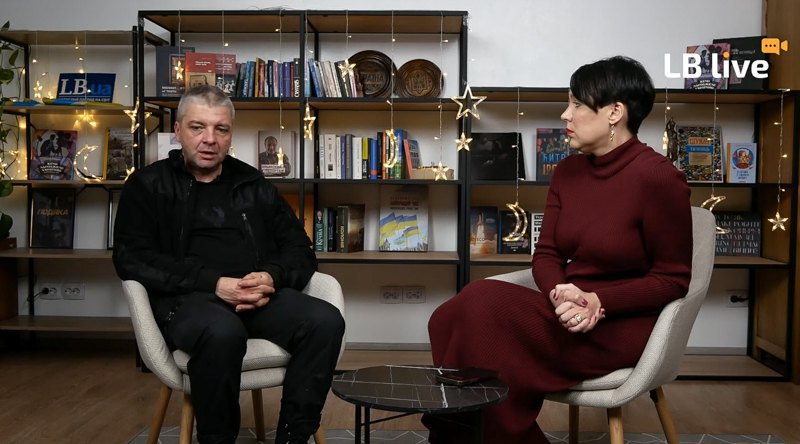
Russian or local Luhansk [detention centre], where were you? This is an important clarification, and I will explain why later.
I was in Luhansk and later in a penal colony in the occupied part of Luhansk Region. The TV there was Luhansk-24, a channel that, frankly speaking, wasn’t particularly popular among the prison population. That, in itself, was remarkable. If you wanted to hear about “semi-Dugin geopolitics” or “Anglo-Saxon conspiracies” — all that sort of thing — you had to turn on Luhansk-24.
But for the most part, it was Russian federal TV channels. While they had slightly different styles, the messages and narratives were absolutely identical. It was possible to extract some factual information from this stream, but it wasn’t easy. It was the same in the penal colony. I tried to avoid watching TV because the content didn’t change much, and the news could often be gathered in other ways, including from those who did watch it. Still, there were, of course, many things that remained unknown or incomprehensible simply because we were living in a completely different reality.
I had expected the worst for when I returned. And yet, I never doubted that I would return — except for one possibility: that my health might fail me. In that case, I thought I might head in a different direction, upwards, so to speak. But I never doubted that efforts were being made to bring me back and that sooner or later, in one way or another, they would succeed.
When I returned, I anticipated seeing a country in a far worse state, simply because it’s fighting a war for survival — a war of attrition. Our resources are extremely limited compared to those of the aggressor. I expected something harsher, poorer, more black-and-white, more exhausted than what I found.
That’s why I asked, because many people think the same.
Hope for the best, expect the worst — you won’t be disappointed. Honestly, I thought it would be worse.
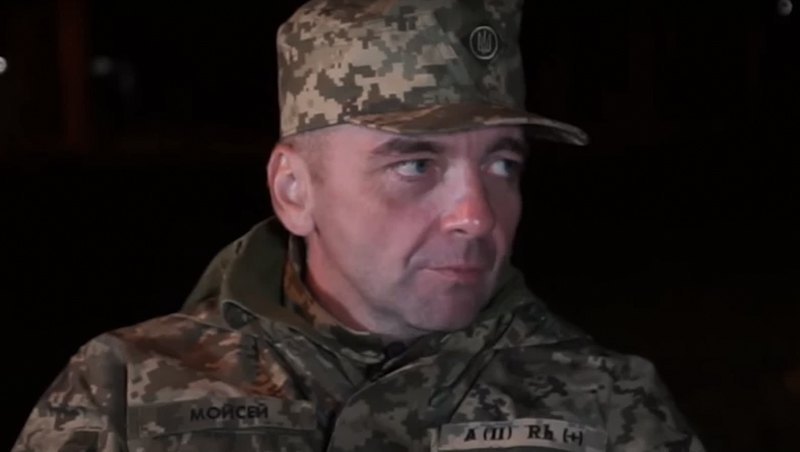
But when I came back, one of the things that immediately amused me was that I had expected a much worse situation regarding the diversity of opinions, including public discourse about what is happening in the country, what our values are, and what ideological platforms we stand on — if it’s even appropriate to talk about ideology at this point.
Of course, in a state or country fighting for its survival, some opinions that would simply be considered opinions in peacetime can become acts of participation in the war on the side of the enemy. But beyond that, across the rest of the spectrum, this diversity exists.
What surprised me was seeing much more freedom to discuss sensitive topics than I had expected. That was the first thing.
Secondly, I noticed a much more diverse, vibrant, and interesting cultural life, which is very important to me. This is also a significant indicator.
When I disappeared from our dimension and entered that parallel one, the last forecasts I saw back then (in the spring and early summer of ‘22) about the future of Ukrainian book publishing were grim. Predictions centred on the destruction of production facilities and the reality that people wouldn’t buy books during a war — they’d buy bulletproof vests or donate to something instead.
They don’t go to the theatre.
Exactly — they don’t go to the theatre either. But what I saw when I came back was entirely different. And it’s beautiful.
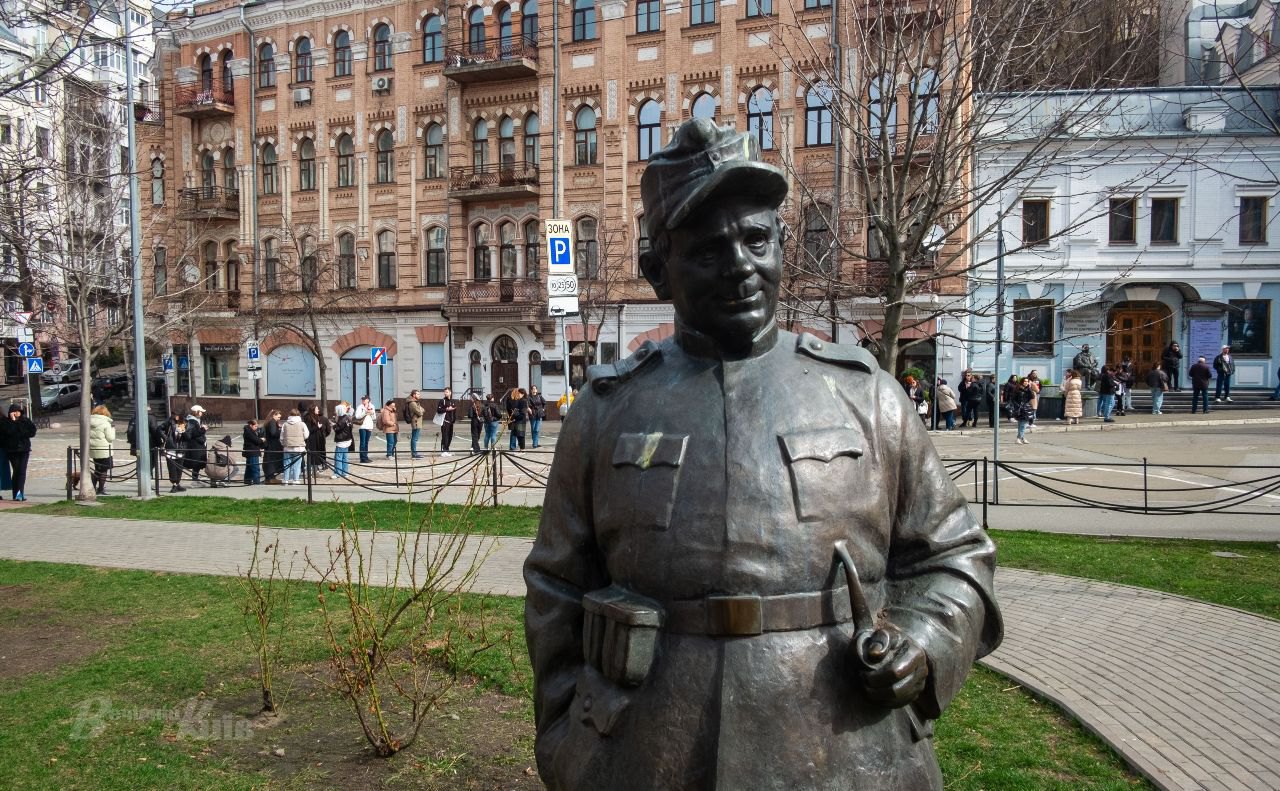
“You can force a person to do something physically, but it’s much harder to get into their head and heart.”
You’ve often said that the most important thing in captivity is to stay alive, and that soldiers should be prepared for the possibility of captivity: how to behave, what not to do, and what to do. Many soldiers, when they go to the front, think about what will happen if they become the 300th or 200th (“300th” refers to wounded soldiers and “200th” to the dead, based on military codes). But few consider the possibility of being captured. Of course, these are deeply unpleasant thoughts, but even minimal instructions could be provided.
But is it possible to mentally prepare someone for captivity? Many people who know you closely say that you’ve returned perhaps even more whole than before. You already had that strength, and captivity seems to have brought it out even more. But not everyone has such a foundation or moral — not just resilience, but integrity.
The late Ihor Kozlovskyy, a religious scholar who spent two years in captivity in the temporarily occupied territory of Donetsk Region, once said that, to avoid going insane, he gave lectures in solitary confinement to the rats that crawled out of holes in the floor.
I believe it’s not only possible but necessary to prepare for captivity. It might not be easy for everyone, and each person has their own tools. You have your own supports, and you can build your internal resistance wherever you are. I absolutely think it’s possible.
I’m very grateful for the kind words I hear, including what you’ve just said. But protecting your inner world is the hardest thing for captors to breach through violence, humiliation, or threats. You can force someone to do something physically, but breaking into their head and heart is much harder.
This idea is well illustrated by a classic, 1984 by George Orwell. The protagonist isn’t truly broken when he complies outwardly, but when his inner world collapses. In reality, though, it’s incredibly hard to destroy a person’s inner self if they are actively protecting it and have prepared for the challenge.
Additionally, the system in which a person is held captive — whether they are a prisoner of war or convicted on fabricated charges — encourages degradation. This includes intellectual as well as emotional degradation. Trying to slow or stop this process requires conscious, counteractive effort. That’s the key to holding on.
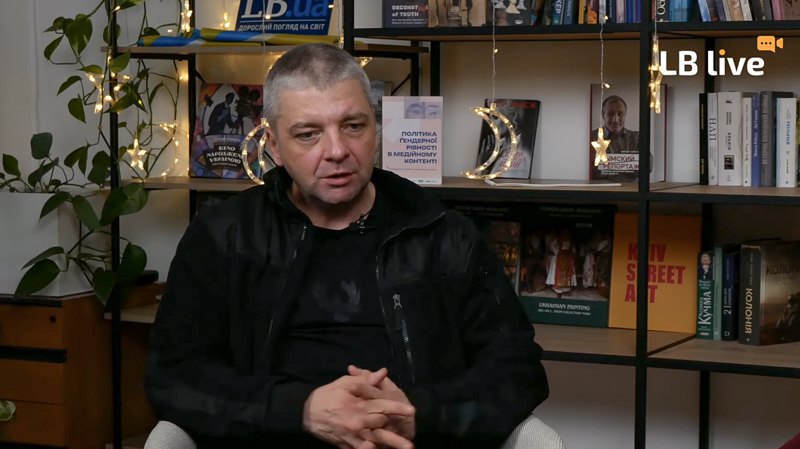
For example, I’ve seen people who didn’t have the habit of reading at all on the outside, but began doing so while in captivity. It wasn’t just out of boredom — often, they weren’t bored at all (this applies, for instance, to the colony). Rather, they felt the need to create a separate dimension for themselves.
If someone had an interest in matters of faith but no prior practice, they would often begin practicing. If you genuinely feel it is necessary, then it’s not only possible but vital. You need to create this private space, to think and prepare for it. You have to decide for yourself what is most important within, what values matter the most, and what practices you can rely on. This will be different for everyone.
For example, I wasn’t in solitary confinement, but I still gave lectures to my cellmates upon their request. We even studied English — without pen, paper, or texts. I’ve never taught any language before, but it turned out to be incredibly engaging. My best student, a civilian prisoner, jokingly suggested I patent the method after my release because, while it was difficult to learn English without any materials, it was also very interesting.
Did you also interact with criminals when you were in the Luhansk Region?
It was a bit more challenging with criminals, although some of them were interested in engaging. Teaching a language, especially English, wasn’t something the colony administration approved of, so that was out of the question. But discussing intellectual topics, even on a basic level, was possible.
There were individuals convicted of criminal offences who were obviously very familiar with that side of life. It was fascinating to have conversations with them.
How so? Explain. Here you are, a person with education, erudition, and knowledge of languages. What could you possibly find interesting, aside from understanding their level?
It becomes difficult if you think strictly in terms of levels. Instead, I tried to see each person as a separate world, one where you can discover so much if they choose to open up to you. If they have a specific interest, perhaps you can share something with them as well. It was interpersonal communication.
Many of these individuals had interests in topics they had never had access to before — whether due to life circumstances, social background, or something else. But when that interest was there, you could help open a door for them.
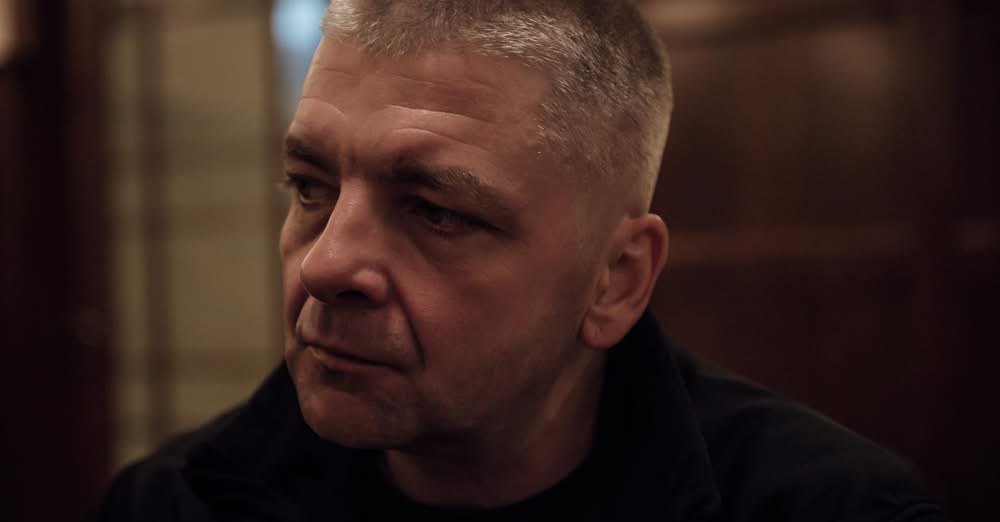
On the other hand, I might have had a request myself — to understand their perspective or navigate situations I wasn’t familiar with. It was an opportunity to see the world through their lens, a perspective that wasn’t mine but was worth exploring.
Of course, no one imposed anything on anyone, but people are different, and this diversity of human experiences and worlds becomes especially significant in such conditions. I began to truly feel its importance.
“If we lose, then, of course, there will be no new system of stability, security, rights, and freedoms. It will be impossible to create it.”
Returning to the main theme of our conversation — the future — I’d like to discuss the reform of the global human rights system. You’ve repeatedly emphasised in interviews that the current system, as it was designed after the Second World War, is no longer functioning effectively. Clearly, something needs to change. What exactly? And how does it depend on the outcome of this war?
First of all, the origins of the system — however ineffective and rightly criticised it may often be — remain significant to me because they are rooted in fundamental values that still matter deeply.
For example, the Universal Declaration of Human Rights. While it’s a declaration, not a binding treaty, it was the first legal document to place dignity, freedom, and solidarity at its core. These are the foundational values for creating not just a national or regional order but a global system.
Beyond its legal significance, I find the Declaration almost poetic. The first article of the Universal Declaration: "All human beings are born free and equal in dignity and rights and are entitled to hold themselves out to one another in a spirit of brotherhood." I always add "and sisterhood", of course. It's poetry. But it is also a legal document.
The Geneva Conventions are also a legal document. As a prisoner of war, you were supposed to be protected by them, but when you reminded the Russians of this, they just laughed.
On the other hand, they accused us of violating the Geneva Conventions. The fabricated case against me is precisely about my alleged violation of the Geneva Conventions, which was not the case.
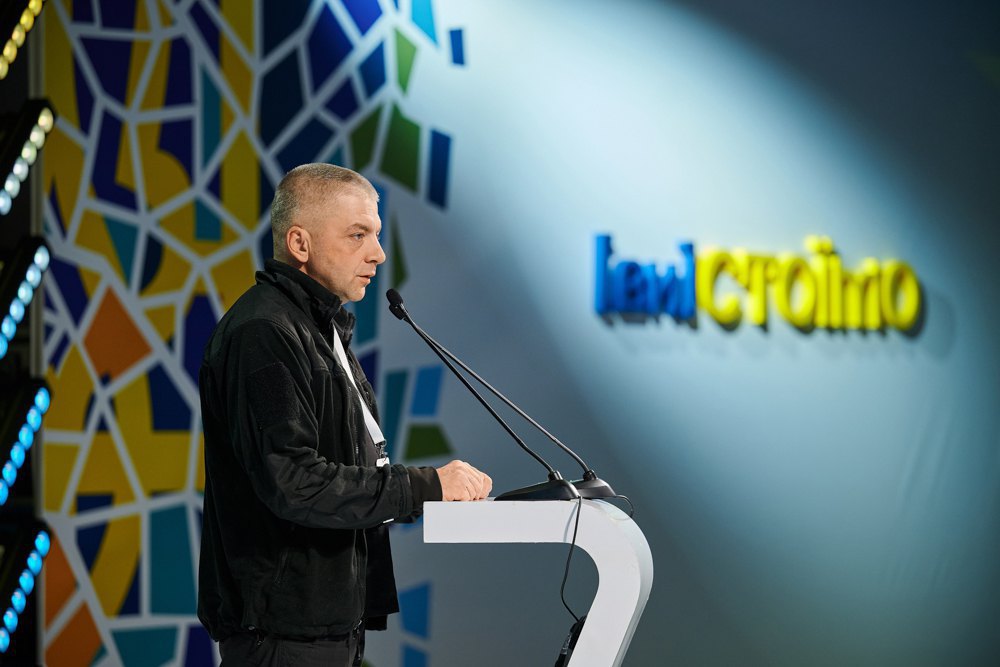
The fact is that the Russian Federation — building, as many have noted, an axis of states governed by some of the most oppressive and inhumane regimes of our time — is not merely waging war against Ukraine. It is systematically dismantling what remains of the effort to place fundamental values at the core of our region.
Instead, it seeks to restore the principle of “might makes right” on a global scale, far beyond our borders. It operates under the belief that agreements should only be honoured when convenient, and discarded when they’re not. That the state takes precedence over any individual or even entire populations. That human lives are expendable resources to be sacrificed for the illusion of imperial grandeur.
This is why, if our war does not end with the successful defence and affirmation of these values, the devastation will not remain confined to Ukraine. The resulting scourge will spread far beyond our borders, consuming countless other nations and peoples. Unfortunately, this is something that many in other countries either fail to grasp or refuse to acknowledge — whether because they are fatigued by Ukraine’s plight or for other reasons.
This is why I firmly believe the outcome of this war is critical. If we lose — and I don’t believe that will happen…
Do you believe we will win?
I believe we will win. The question is, what do we mean by “win”?
Let’s consider the alternative. If we lose, then it will be impossible to establish a new system of stability, security, and respect for rights and freedoms. At best, the world will fracture into isolated compartments, where each nation defends what it deems important from its neighbours in an environment of hostility and mistrust.
But in such a world, people will not be seen as important. Instead, they will merely become tools to serve other priorities.
What does a Ukrainian victory mean to you?
This is a challenging question for all of us, for our entire society. To be honest, I wouldn’t like to focus solely on territories, though the issue is, of course, a matter of principle. Fundamentally, a victory for us should also mean the restoration of the system of values that the Russian Federation is attempting to destroy. This would ensure that these core principles — dignity, freedom, and solidarity — continue to exist as cornerstones of the future.
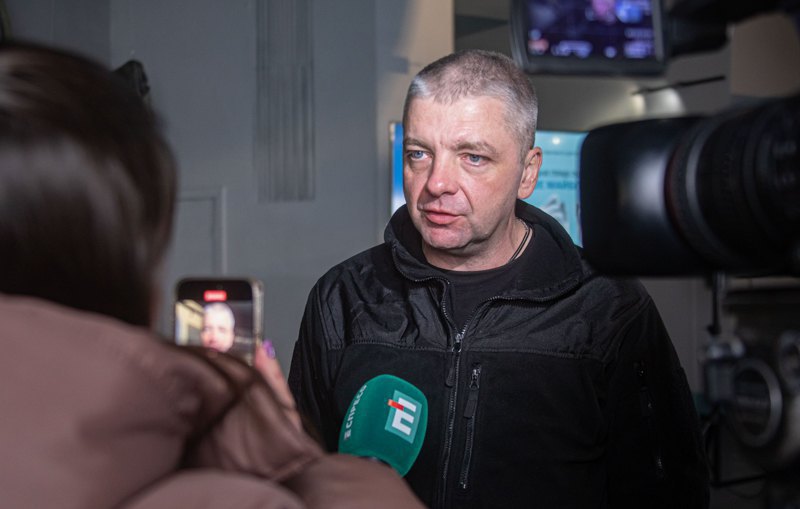
But the main thing is not the territory. For a moment, let’s imagine a scenario where Ukraine regains its 1991 borders but lacks any meaningful security guarantees. Such an outcome would simply be a pause before the next, even more devastating war — a war bloodier and filled with more grief and human casualties. That would not be a victory. It wouldn’t even be a reprieve. It would be merely an opportunity for the other side to regroup and prepare for greater destruction.
As we approach 2025, various scenarios are being discussed. It would be premature — and, frankly, charlatanism — to draw conclusions now, especially when key factors, like Trump’s team and its potential policies, remain unclear.
However, hypothetically speaking, would a freeze on the current frontline constitute a victory for us?
For me — and I emphasise this is my subjective view — what truly matters is whether we achieve guarantees of security, as well as assurances that the tragedy imposed on us in both 2014 and February 2022 will not be repeated. If these guarantees are in place, we can say that we have successfully defended ourselves and our future.
“In Russia, the human rights movement has not become systemic. It has not influenced the mechanisms of the state’s functioning.”
In a previous interview, you were asked about cooperating with Russian human rights activists. You said it was something you believed in, noting that some of your Russian colleagues supported you to the extent they could — even going to court — until they themselves ended up in prison.
In the early 1990s, the human rights movement in Russia seemed to be developing rapidly. There was a sense that Russian society was rethinking its terrible legacy. But this “epiphany” was short-lived.
What path must Russian civil society now take, particularly in the narrow sphere of human rights protection? This is not about searching for “good Russians” but understanding their trajectory, as we, unfortunately, cannot escape being neighbours.
This is an important and complex issue for me for several reasons.
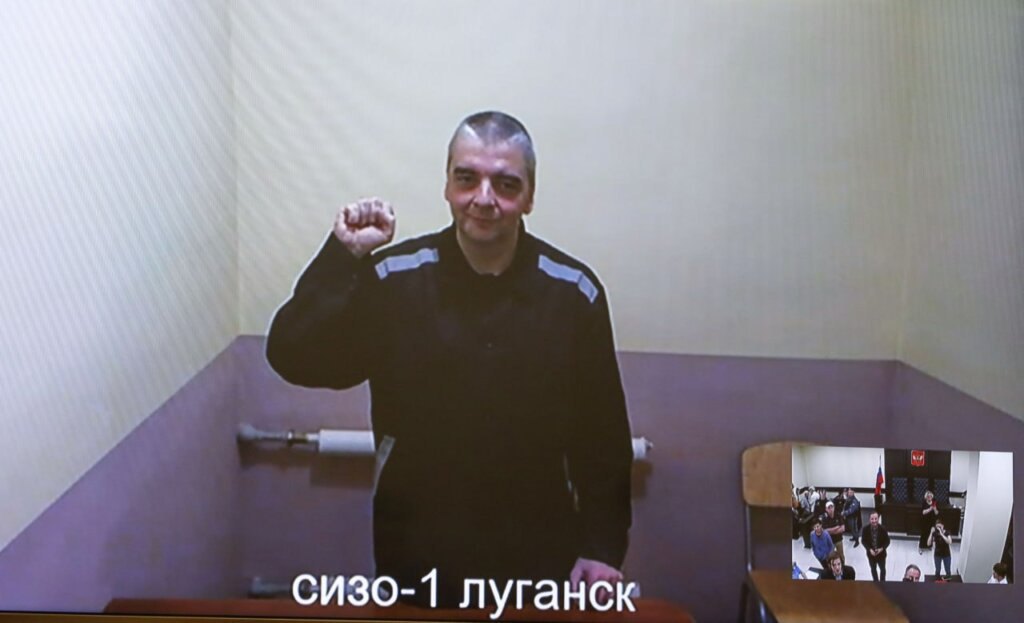
If I may, let me begin with the narrower context of human rights. I fully agree with your observation about the rapid growth of the Russian human rights movement in the early-to-mid 1990s and the grim turn that followed. It’s a fascinating and troubling trajectory.
Despite the development seen in the late 20th century, the Russian human rights movement never became systemic. It failed to influence the mechanisms of governance or the broader state apparatus. The backbone of the Russian state remained composed of individuals with entirely different values. The eventual dominance of the NKVD, KGB, FSB, and their successors — figures untouched by the human rights discourse — completely reversed the progress that had been made.
What was done in terms of information and education was never integrated into either the formal or informal education systems, even though informal human rights education at the time was quite strong. In other words, the backbone of society remained largely unaffected.
Why? After all, they also lived through the Great Terror. Yet they drew no conclusions. I think this points to some deeper anthropological issues.
Several factors contributed to this. The system was not designed to prevent the recurrence of such horrors but rather to teach a specific lesson: do not stand out, or you will meet the same fate as your ancestors. Obey the state, or it will do to you what it did to them. Simultaneously, people were encouraged not to think about it too much. Reflecting on these events was uncomfortable — not for the descendants of the victims, but for the descendants of those who carried out the executions.
As for the future of Russian society, I cannot predict its trajectory because I do not belong to it. Ultimately, any society must determine its own fate. Of course, there is no such thing as a wholly unified society — it’s always more nuanced — but this is a general observation.
Whether we like it or not, what we see today is that imperialism — upon which much of the Russian identity is built — has not disappeared within large segments of Russian civil society. There is a significant issue with Russian identity because, at its core, it is an identity rooted in empire.
I get the impression that the current ideologues of modern Russia — the architects of Putin’s regime and its supporters — have completely missed the moment when empire became obsolete. It’s as though they have overslept the shift in the world, where the era of empire is no longer seen as progressive or desirable.
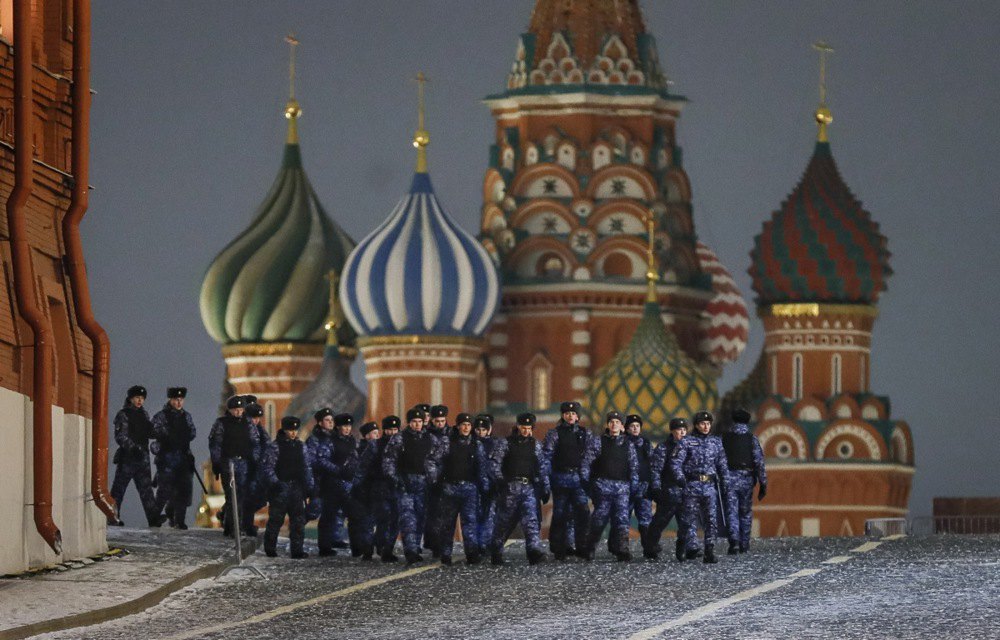
When it became shameful to be an empire, we saw former imperial powers trying to come to terms with their colonial past — at least at the level of rethinking values and historical accountability.
Take Britain, for example.
Yes, Britain. Or France. And a number of other countries.
Now, let’s acknowledge that this process is controversial. It’s true that the foreign policies of former metropolises still bear the marks of imperialism. But, on the level of values, a rethinking has occurred. In Russia, however, this has not happened. There is no recognition that it’s not only unfashionable to be an empire but shameful. No understanding that colonised peoples are individuals with their own agency, with rights, and that the human beings within these peoples have rights.
Another factor to consider is the nature of Russia’s imperial myth compared to others. The British imperial myth, for example, is tied to the idea of bringing civilisation; the French myth revolves around spreading a secular state, the Napoleonic Code, and justice separate from religion. Education, too, was often part of their narratives. But what did the Russian Empire bring in terms of values?
Pain, destruction, and primitivism. Zero good or useful things.
The absence of this rethinking — of recognising that empire is not only outdated but disgraceful — has almost guaranteed the resurgence of attempts to restore the empire, now in the most grotesque and violent ways. What we are witnessing today is an imperialist war based on 19th-century blueprints, waged with the weapons and methods of the 21st century. Until this historical reckoning happens, I don’t see a future for Russian civil society, at least one that isn’t resigned to being just another cog in the state machine of a rebuilt empire.
But are they even capable of this reckoning? Can we imagine some hypothetical new Willy Brandt kneeling at a monument to the victims of Bucha in 25, 50, or even 75 years?
I don’t know. I would like to believe so, but I don’t know.
Generalisations are always dangerous, and this is perhaps the only thing that gives me hope. When we talk about “everyone,” we risk losing sight of the individuals. I personally know people — some still in modern Russia, others forced to leave — who belong to this community, who retained their critical thinking, open minds, and capacity for re-evaluating both the past and present. These people, understanding what is happening, are at least trying to act on an individual level, offering help to those suffering from the state apparatus that has taken over their homeland.
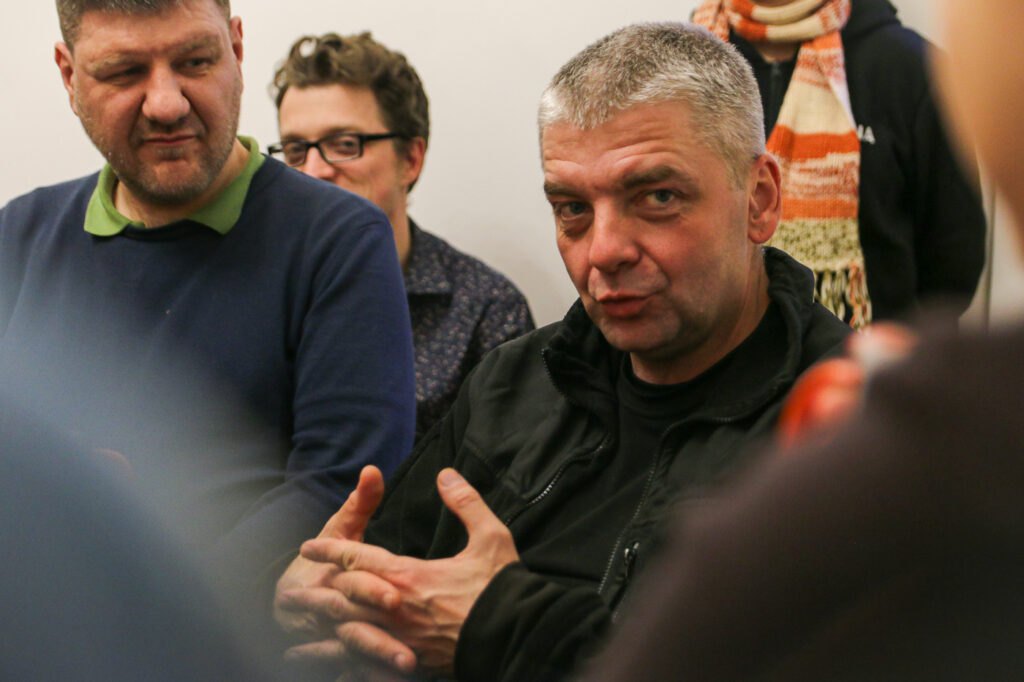
“It is not necessary to physically commit crimes against humanity or genocide to be convicted of them.”
Another important aspect that I wanted to discuss with you is your faith. You are a believer in the Orthodox Church of Ukraine (OCU), something even many of your close friends did not know. This faith supported you greatly during your captivity. You read what you could, and even visited the local chapel — though the Russian Orthodox Church (ROC) was, of course, out of the question. We see now that the ROC has become one of the key instruments of this war.
Oh, yes!
This is a vast and complex topic, but I want to try to condense it from the perspective of human rights. I hope that Putin and the primary war criminals will eventually stand trial in The Hague. And I am confident that significant and fundamental changes will come to the Russian Orthodox Church as an institution once this war ends with Ukraine’s victory.
But I want to raise a question about secular accountability — legal responsibility for those who declare this war a “holy war.” When Patriarch Kirill tells Vanka from near Perm, “You are not a murderer; you are a warrior, a martyr. You are fighting a holy war.”
From the standpoint of international human rights law, what level of responsibility should the top leadership of the Russian Orthodox Church bear, given that they have turned religion, faith, and the institution of the Church itself into tools of genocide?
There are two dimensions to this question. The first is precisely what you’re referring to: secular responsibility. And, to be honest, for me, this is quite straightforward. Here’s why: it is not necessary to physically commit crimes against humanity or genocide to be held accountable for them. You can organise, support, and incite them, or direct others to carry them out.
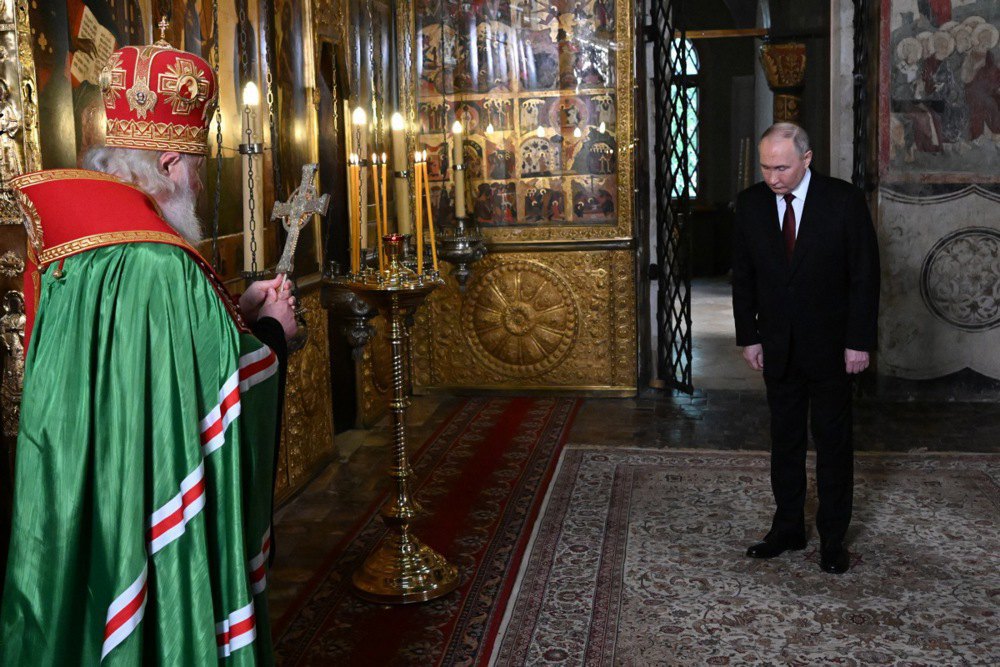
Perhaps this is a trivial example, but it has always been important to me, even before the Great War began — and even more so after it did. It is about the responsibility of propagandists.
There is international precedent for holding propagandists accountable. Consider the International Criminal Tribunal for Rwanda, where several media figures, most notoriously from Radio Télévision Libre des Mille Collines (Thousand Hills Radio), but also from the Kangura newspaper and other outlets, were convicted. They stood trial and were given the opportunity to defend themselves, but the evidence demonstrated that, while they did not personally kill anyone, they bore responsibility for inciting genocide. Without them, either the genocide would not have happened, or it would not have been on such a horrific scale. This was proven in court.
That is why, for me, the responsibility of propagandists is absolutely undeniable. Without the Russian propaganda machine, there would be no war — or at least, it would not have taken this form.
I do not see any significant difference between the hierarchs of the Russian Orthodox Church and the leading figures of the Russian propaganda machine. They perform the same function: providing an ideological justification for aggression and crimes. So why not hold them accountable on the same grounds? I firmly believe they should face justice.
The second aspect, however, is more complex for me. And I think it is even more complicated for Russian Orthodox believers. What has happened to the Russian Orthodox Church is nothing short of a disaster. This Church, which is the largest Orthodox community in the world in terms of parishioners, has been deeply compromised. This is not just a catastrophe for the Orthodox world — it is a tragedy for the Christian world as a whole.
The question is: how will this church community come to terms with what has happened? How will they reckon with the fact that their leaders justified the mass murder of people with sermons cloaked in naivety? I saw this firsthand in the publications from within that chapel. They preached that they had come to Ukraine and started the so-called “special military operation” because they loved the people who lived here — loved them so much that they came to kill them.
I cannot even express how many times Christ has been crucified again in this. How will the Russian Orthodox Church reckon with this? How will its believers reconcile their faith with the actions of those who claimed to speak in God’s name?
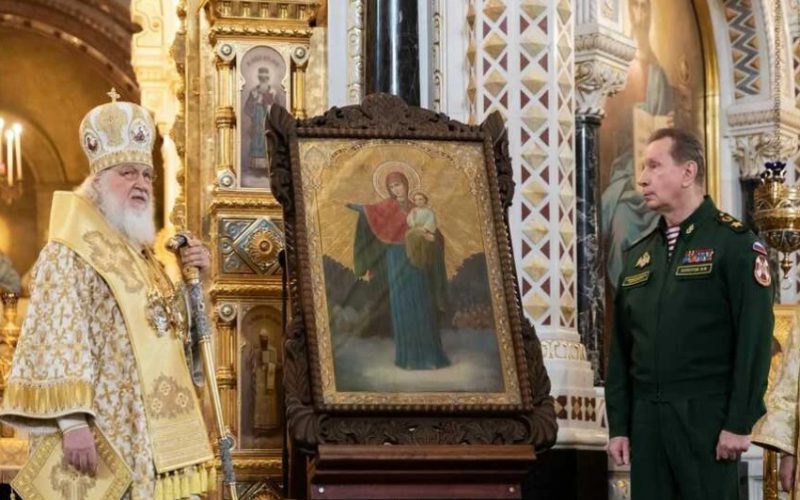
And Ukrainians, too, who are part of the Russian Orthodox Church.
Yes, and those in Ukraine who remain part of the Russian Orthodox Church. After everything I have seen and heard, all I can do is revisit what we know about the Antichrist. For their believers, reckoning with this will be an extremely difficult task.
I believe the issue of secular responsibility is clearer and more straightforward to address. But figuring out what to do with the ruins of what used to be the Russian Orthodox Church — and those who still follow it —will be a far more complex challenge for their spiritual community.
There are also broader lessons to consider. This isn’t just about ‘them,’ as though their failure is unique to them, and we are immune. It’s dangerously naïve to think, ‘This could never happen to us.’ What happened to the Russian Orthodox Church, and what continues to happen to those who refuse to analyse the Church’s role in this tragedy, is a cautionary tale for everyone.
As Christians, we remember the Decalogue — the Ten Commandments — and the explicit prohibition against idolatry. But for some reason, many people see this commandment as outdated, something that applied only to ancient pagan times. For me, however, the events I witnessed—particularly during my time in captivity—made it painfully clear that this commandment remains as relevant as ever.
When we take something created by humans — be it a state, state institutions, ideologies, or other constructs — and elevate it above people, offering human sacrifices to this monstrous entity that begins to live a life of its own, we are unquestionably breaking this commandment.
And what do we see now? A horrifying number of people who consider themselves Christians willingly offer human sacrifices to Moloch, the monstrous idol. This mythical deity, once associated with nature and the sun, was infamous for demanding human sacrifices, especially children burned alive. Yet here we are again, seeing the same phenomenon dressed in modern garb. This, I think, is the most urgent moral crisis of all.
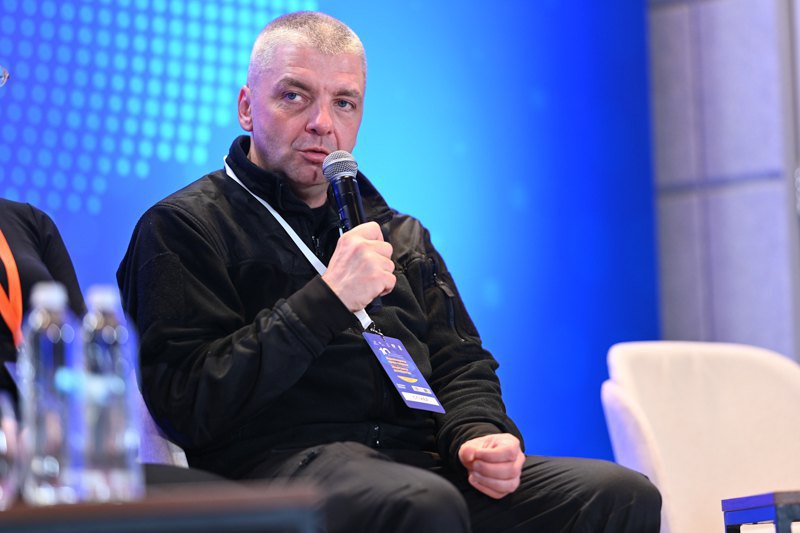
“I have heard repeatedly from senior local residents convicted of criminal offences that the best period in the history of Luhansk was the Ukrainian period.”
Another difficult topic is our citizens who remained in the temporarily occupied territories. One of the main narratives of state policy is the borders of 1991. Even if there is some kind of temporary freeze along the current frontline or in some other way, we still do not give up our state borders. We remain confident that we will return Donetsk, Luhansk, and Crimea.
But for some reason, we are not talking about how we will actually Ukrainianise these territories and the people who — if we start from 2014 — have been living for more than 10 years without the Ukrainian language, schools, education, media, political parties, churches, and everything else.
You were in the Luhansk SIZO and Luhansk colony. Of course, it’s a closed, specific world. On the one hand, there are local employees of the penitentiary system. On the other hand, there are mostly criminals there, except for our guys who were captured, just like you. But why did I ask at the beginning whether there was local television? How possible is it to assess the general mood from this small sample? Will we ever be able to live with them again in the same country? Is there any way to bridge the gap — and how?
I think it is possible to bridge the gap. And I don’t think it will be easy. I don’t have a step-by-step strategy in my head of what to do technically and how to do it — although this is what needs to be done. But it seems to me that, first of all, we should not base our approach on coming in and replacing the existing system with our own by simply imposing it. Because this is what many people are expecting: that the Russian system will go away or be dismantled, and people will come in and impose their own system. If this happens, the attitude will not be any different from what it is now.
I think this is, again, a question of values — firstly, values, and secondly, rights. Those people who live there now, who are not involved in the crimes of the occupation authorities, are not collaborators. I will not go into these controversial legal issues now, but they exist. We know that there is collaboration, which is absolutely obvious. At some point, they agreed to exchange their own freedom for what they perceived as relief from any responsibility. That is, they allowed the vertical of the Russian occupation authorities to decide even the most basic aspects of their lives. But if this is the case, then everything that happens is decided by those at the top, and they themselves bear no responsibility for it.
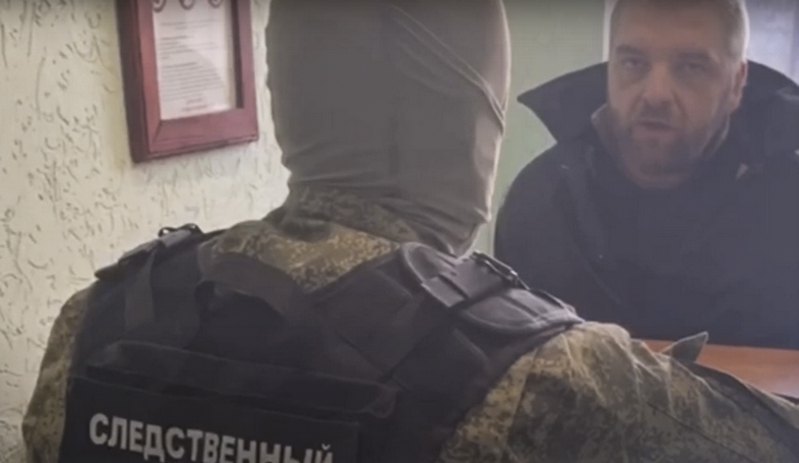
They think so. I’ve said this elsewhere, but for me, this is a very important topic and idea: this is, of course, a deal with the devil. He comes and says, “Let me take away your freedom, but I’ll also take away your responsibility.” But in this manoeuvre of the devil, he takes away your freedom, yet you still retain responsibility.
The feeling that responsibility remains while freedom is returned — this is what we have to achieve. And we must come with rights, so people know they are protected, not at the mercy of the state, which can decide to do anything with them at any time. This is what we have now.
This is if they value freedom at all. If they exchanged it ten years ago, where is the guarantee that they have since realised it is a value?
I repeatedly heard from the older locals who were with me, those convicted of criminal offences, that the best period in the history of Luhansk was the Ukrainian period. Even though they were not pro-Ukrainian at all, they still remember pre-Maidan Ukraine.
The times of Kuchma.
The time of Kuchma. The times of Yanukovych. This is not exactly what they wanted to associate themselves with. And now Ukraine is completely different.
To conclude this topic, a small clarification about Crimea. I would propose to separate Luhansk/Donetsk and Crimea. We know that in 2015–2016, many Russian citizens moved to the peninsula. On the one hand, these were families of military personnel stationed there. But not only them. People were offered “lifting” salaries, guaranteed jobs, and housing in Crimea, enticing them to move there. Of course, they agreed. And in 10 years, they have already settled down. According to various estimates, there are now more than 800,000 such holders of Russian passports — Russian citizens.
If we liberate Crimea tomorrow, the families of the military will pack up and leave. But what about the rest of them? We cannot deport them forcibly, as the Czechs did with the remnants of the Sudeten Germans in 1945, from the point of view of international law. Of course, they will not have the right to vote. They will be limited in their civil rights. But this involves the language, the schools, and so on. What should be the state strategy for the Ukrainisation of Ukrainian Crimea, while there will still be a certain proportion (and most likely a considerable one) of Russian Federation citizens, no matter how much we wish it were otherwise?
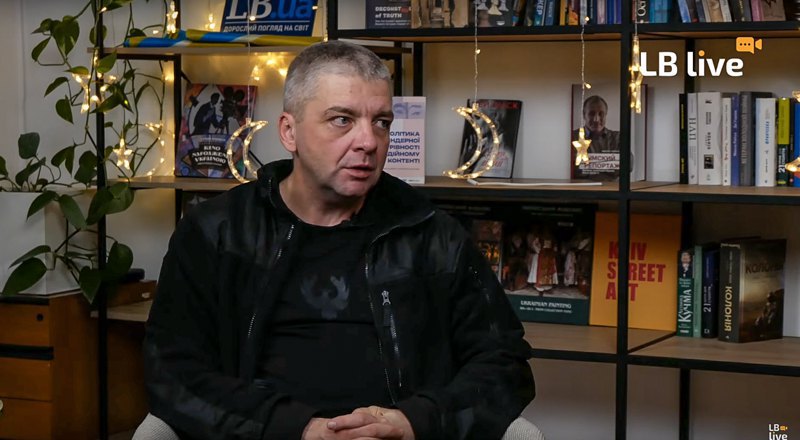
To be honest, it is very difficult for me to imagine a situation where people in the territories liberated from occupation remain with the citizenship of the occupying power and live there under this citizenship, especially since we are not talking about a mere transfer of territory.
I don’t mean any kind of harsh repression or simple repression. The point is that these are foreign citizens, and there are rules for them. Moreover, these are not just foreign citizens — they are citizens of the aggressor state. Therefore, either there is a change of citizenship — not a formal one, but an acceptance of the rules and values on which the Ukrainian community is now built — or it is unlikely these people will be able to live without belonging to this community.
And it seems to me that over these 10 years, plus the three years of the Great War, Ukrainian society has reached consensus on some fundamental things. I would like to believe that. Otherwise, it is unlikely these individuals can integrate while remaining disconnected from these shared values.
But again, I want to emphasise that this is not about a forced exchange, like Operation Vistula (the forced deportation of the Ukrainian population of southeastern Poland who remained after the resettlements of 1944–1946. - S.K.), or deportation, as with the Sudeten Germans (2.9 million so-called Sudeten Germans were expelled from the Czech Republic after 1945, when the government of the republic accused them of involvement in German aggression against the Czech Republic). I just don’t see how such options are possible.
However, I also don’t think it will be feasible for them to remain part of the aggressor’s machinery while pretending that nothing has happened.
For someone with the logic of “I am a small person,” perhaps this might seem acceptable.
But I believe that such “small people,” living by this logic — which is not close to us now—will do everything to relinquish that citizenship and obtain Ukrainian citizenship. Before that, they will likely acquire a residence permit as part of a transition period toward full Ukrainian citizenship.
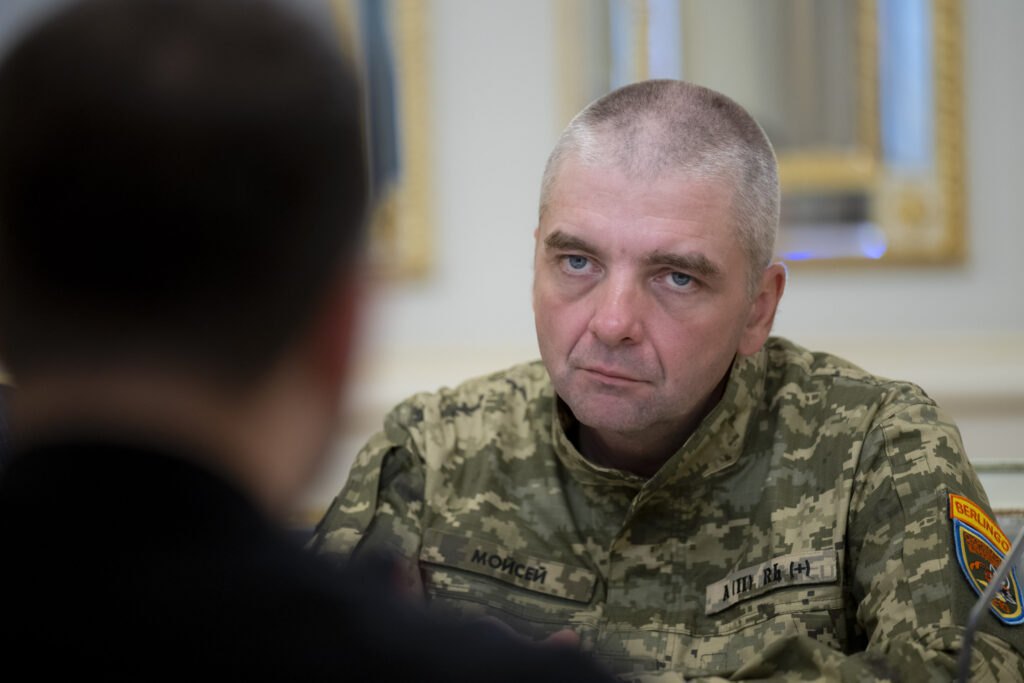
“I will be demobilised, yes.”
You mentioned that when you returned, you were pleasantly surprised by the rehabilitation process now taking place in the Ukrainian state. I’d like to expand on that a bit.
When soldiers return, they work with psychologists, but there is still a time lag — four weeks, like you had, or four months, or longer. Time passes, and then you are left with yourself, alone. A serviceman can still return to the army, where he will be among his own. A civilian does not have this option. How do we, as a society, rehabilitate from the traumas that everyone has endured?
This is a very important topic for me because, first of all, my four-week rehabilitation really helped me. It was, as I later realised, extremely beneficial. Without it, things would have been much harder. On the other hand, the specialists who worked with us emphasised that what we’re really talking about is reintegration. Rehabilitation is a much longer process, and I understand that it’s not over for me — it’s still ongoing in many ways.
One colleague who works in the reintegration group of the Armed Forces of Ukraine, and who has his own experience of captivity and return, told us that based on his personal experience and that of many others, the really problematic period can begin even three months after being released from captivity.
The effects can last a very long time. So, while I was pleasantly surprised by the rehabilitation centre I attended, the truth is, we don’t yet have a comprehensive system for rehabilitation and reintegration. It hasn’t been created. If we do see large exchanges and the return of many people from captivity — both prisoners of war and civilian detainees — as we all hope for, we also have to consider the many more soldiers who will come back from combat once the war is over. Right now, we don’t have a system capable of accommodating even just the prisoners of war. This is a much larger number of people than the current system is prepared to support, even for just three or four weeks.
And what you mentioned is crucial — there is a next stage: the stage of support. After the active phase of reintegration, medical and psychological support becomes essential. Social support is equally important because many people returning from captivity or combat face a completely different social reality. This includes basic but critical social issues that many cannot resolve on their own.
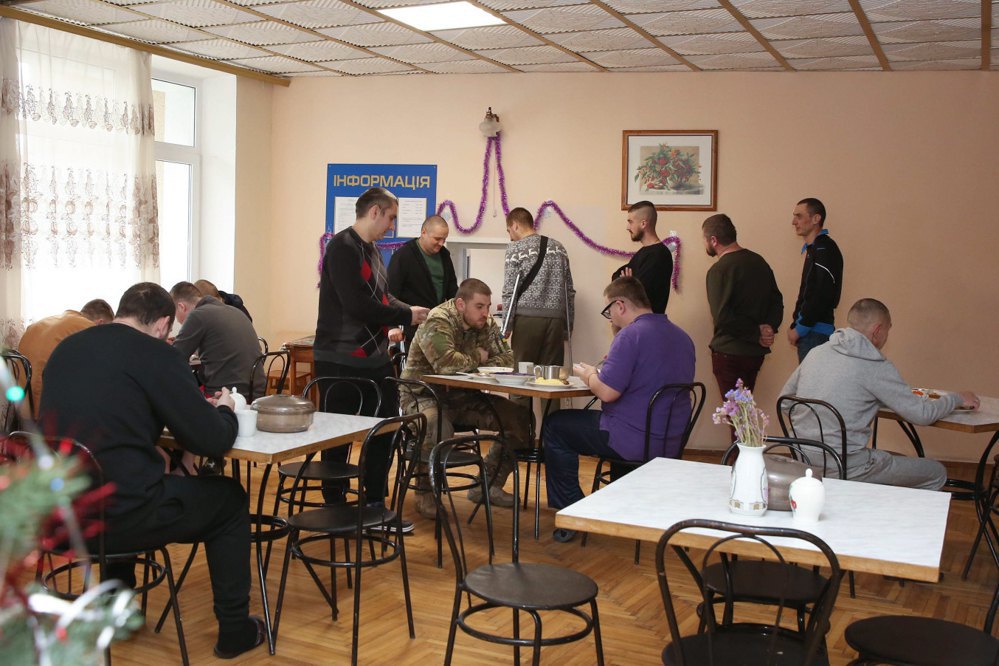
We need to create this system. We shouldn’t wait until people start coming back, because if we do, the same thing will happen again: we desperately want something, it finally happens, and then we realise we’re not prepared for it.
Let’s be proactive and, for once, prepare a platform for those we are waiting for.
Speaking more broadly about society: yes, we all carry traumas. Of course, everyone has people — whether close or distant relatives — whom they have lost, but that’s not the point. Unfortunately, we all have our own martyrology (list of martyrs - S.K.). Without mutual support and an understanding of the fragility of our lives and states of mind, I’m afraid we won’t achieve proper rehabilitation.
This is why we need a system of rehabilitation, integration, and support across the entire country. It’s a massive undertaking, something that hasn’t been done in any developed country in more than 50 years. But right now, we are facing many challenges no one has ever encountered before.
On the other hand, we do have some experience — not only from the international community but also from within Ukraine. We need to attract external resources to help with this. But we must act. Without such a system, we risk being torn apart.
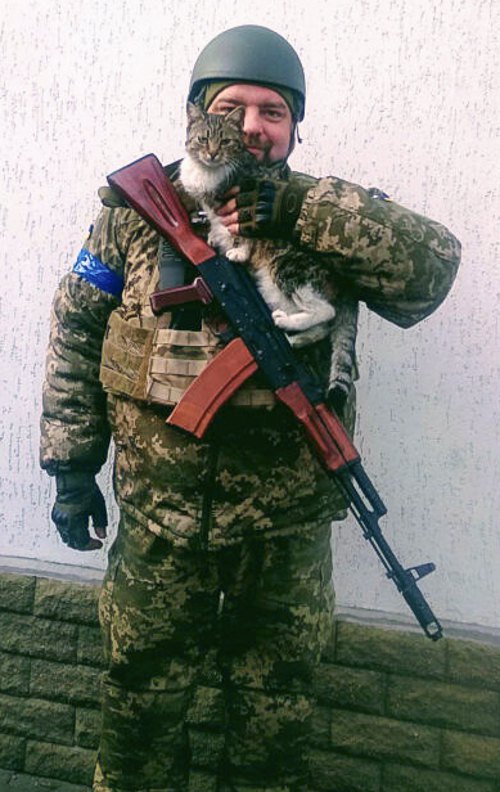
Will you stay in the army?
My priority now is to understand where I can be most effective and useful. To be honest, it’s a fortunate moment — no matter how it may sound — when my personal goals and vision align perfectly with the systemic challenges and demands. For me, the question of whether to remain in the Armed Forces of Ukraine or demobilise comes down to where I can be more effective, whether in uniform or as a civilian.
Luckily, I’ve had the time and opportunity to speak with many people — colleagues and others whose opinions I greatly value. This was important to me not only because their perspectives matter, but also because, unlike me, they haven’t missed more than two years of life here.
The conclusion I’ve come to, despite the psychological discomfort of the decision, is that I will be more effective as a civilian right now. There is a significant need for many things that are easier to address as a civilian than as a serviceman. Psychologically, this decision isn’t easy.
So you are demobilising?
I will demobilise, yes. But I understand and accept that I can always return to the Armed Forces of Ukraine if necessary.
Will you write a book about this experience?
So many people — from those in the Luhansk SIZO to the colony, the rehabilitation centre, my hometown Kyiv, and now in everyday life — I think it must have been hundreds of people, have told me that I should.
I will join these hundreds of people.
I agreed. I agreed to write.








